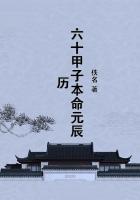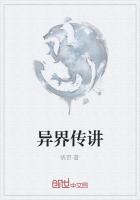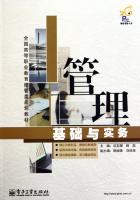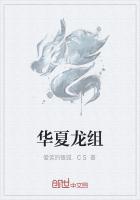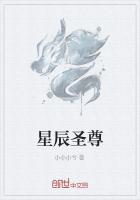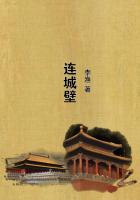When these poems were written, Greece was not known as Hellas, but as Achaia,--the whole country taking its name from the Achaians, the dominant race in Peloponnesos. Now at the beginning of the truly historical period, in the eighth century B. C., all this is changed. The Greeks as a people are called Hellenes; the Dorians rule in Peloponnesos, while their lands are tilled by Argive Helots; and the Achaians appear only as an insignificant people occupying the southern shore of the Corinthian Gulf. How this change took place we cannot tell. The explanation of it can never be obtained from history, though some light may perhaps be thrown upon it by linguistic archaeology. But at all events it was a great change, and could not have taken place in a moment. It is fair to suppose that the Helleno-Dorian conquest must have begun at least a century before the first Olympiad; for otherwise the geographical limits of the various Greek races would not have been so completely established as we find them to have been at that date. The Greeks, indeed, supposed it to have begun at least three centuries earlier, but it is impossible to collect evidence which will either refute or establish that opinion.
For our purposes it is enough to know that the conquest could not have taken place later than 900 B. C.; and if this be the case, the MINIMUM DATE for the composition of the Homeric poems must be the tenth century before Christ; which is, in fact, the date assigned by Aristotle. Thus far, and no farther, I believe it possible to go with safety. Whether the poems were composed in the tenth, eleventh, or twelfth century cannot be determined. We are justified only in placing them far enough back to allow the Helleno-Dorian conquest to intervene between their composition and the beginning of recorded history. The tenth century B. C. is the latest date which will account for all the phenomena involved in the case, and with this result we must be satisfied. Even on this showing, the Iliad and Odyssey appear as the oldest existing specimens of Aryan literature, save perhaps the hymns of the Rig-Veda and the sacred books of the Avesta.
The apparent difficulty of preserving such long poems for three or four centuries without the aid of writing may seem at first sight to justify the hypothesis of Wolf, that they are mere collections of ancient ballads, like those which make up the Mahabharata, preserved in the memories of a dozen or twenty bards, and first arranged under the orders of Peisistratos. But on a careful examination this hypothesis is seen to raise more difficulties than it solves. What was there in the position of Peisistratos, or of Athens itself in the sixth century B. C., so authoritative as to compel all Greeks to recognize the recension then and there made of their revered poet? Besides which the celebrated ordinance of Solon respecting the rhapsodes at the Panathenaia obliges us to infer the existence of written manuscripts of Homer previous to 550 B. C. As Mr. Grote well observes, the interference of Peisistratos "presupposes a certain foreknown and ancient aggregate, the main lineaments of which were familiar to the Grecian public, although many of the rhapsodes in their practice may have deviated from it both by omission and interpolation. In correcting the Athenian recitations conformably with such understood general type, Peisistratos might hope both to procure respect for Athens and to constitute a fashion for the rest of Greece. But this step of 'collecting the torn body of sacred Homer' is something generically different from the composition of a new Iliad out of pre-existing songs: the former is as easy, suitable, and promising as the latter is violent and gratuitous."[151]
[151] Hist. Greece, Vol. II. p. 208.
As for Wolf's objection, that the Iliad and Odyssey are too long to have been preserved by memory, it may be met by a simple denial. It is a strange objection indeed, coming from a man of Wolf's retentive memory. I do not see how the acquisition of the two poems can be regarded as such a very arduous task; and if literature were as scanty now as in Greek antiquity, there are doubtless many scholars who would long since have had them at their tongues' end. Sir G. C. Lewis, with but little conscious effort, managed to carry in his head a very considerable portion of Greek and Latin classic literature; and Niebuhr (who once restored from recollection a book of accounts which had been accidentally destroyed) was in the habit of referring to book and chapter of an ancient author without consulting his notes. Nay, there is Professor Sophocles, of Harvard University, who, if you suddenly stop and interrogate him in the street, will tell you just how many times any given Greek word occurs in Thukydides, or in AEschylos, or in Plato, and will obligingly rehearse for you the context. If all extant copies of the Homeric poems were to be gathered together and burnt up to-day, like Don Quixote's library, or like those Arabic manuscripts of which Cardinal Ximenes made a bonfire in the streets of Granada, the poems could very likely be reproduced and orally transmitted for several generations; and much easier must it have been for the Greeks to preserve these books, which their imagination invested with a quasi-sanctity, and which constituted the greater part of the literary furniture of their minds. In Xenophon's time there were educated gentlemen at Athens who could repeat both Iliad and Odyssey verbatim. (Xenoph.
Sympos., III. 5.) Besides this, we know that at Chios there was a company of bards, known as Homerids, whose business it was to recite these poems from memory; and from the edicts of Solon and the Sikyonian Kleisthenes (Herod., V. 67), we may infer that the case was the same in other parts of Greece.
Passages from the Iliad used to be sung at the Pythian festivals, to the accompaniment of the harp (Athenaeus, XIV.




